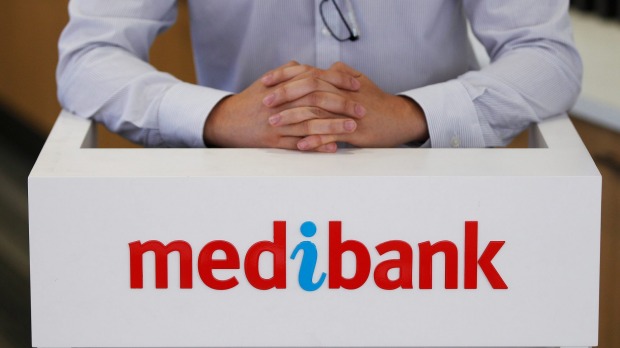
Medibank Private has refused to pay for unplanned patient re-admissions that occur within a month of surgery and medical needs that result from any of 165 “highly preventable adverse events” that occur while a patient is in care. Photo: Bloomberg
The lobby group for private hospitals has injected some inflammatory rhetoric into a stoush over the cost and quality of patient care, accusing insurer Medibank Private of acting like a “schoolyard bully” in its negotiations with Calvary Health Care.
In its first official public statement more than a fortnight after the insurer walked away from contract negotiations with the Catholic operator, the Australian Private Hospitals Association claimed that Medibank was at risk of becoming an “industry pariah” because of its approach with Calvary.
One week ago Fairfax Media revealed that as well as pushing back on an increase in tariffs for care that Calvary was asking for, Medibank was not backing down on new, controversial quality criteria it wants operators to sign up to.
The conditions push more financial responsibility onto hospitals and include refusals by the country’s largest insurer to pay for any unplanned patient readmissions that occur within a month of surgery, as well as any medical needs that result from any of 165 “highly preventable adverse events” such as falling while in care.
APHA chief executive Michael Roff said in an interview that he had come out against the insurer after receiving “an increasing response from our members that they think what Medibank is doing is pushing too far.”
Mr Roff said other operators expected to receive the same approach when their contracts with Medibanks next come up for renegotiations. Market giants Ramsay Health Care and Healthscope both have agreements with Medibank that are set to end in 2016.
In a statement Medibank said it was “disappointed at the poorly informed and incorrect comments” by the APHA, adding it had negotiated with Calvary in a “professional and transparent manner”. “In the last 12 months we have successfully negotiated and contracted with some of Australia’s best known and most highly regarded hospital operators on similar terms to those the APHA has criticised,” the company said.
Private hospital operators rely on private health funds for revenue, so they have an interest in ensuring the sector is sustainable. However Mr Roff said his members wanted a more collaborative approach.
“Everyone expects the financial aspects of the contract negotiations with health funds to be difficult and for the funds, particularly the larger ones, to play hard ball,” he said. “What people are more upset about is the unilateral way that Medibank is trying to impose a punitive regime.
“Let’s work together to improve safety and quality,” he said.
Health funds face ballooning claims due to rising patient volumes and hospital tariff increases. But they also face contracting revenue growth, as members shop around for cheaper providers
